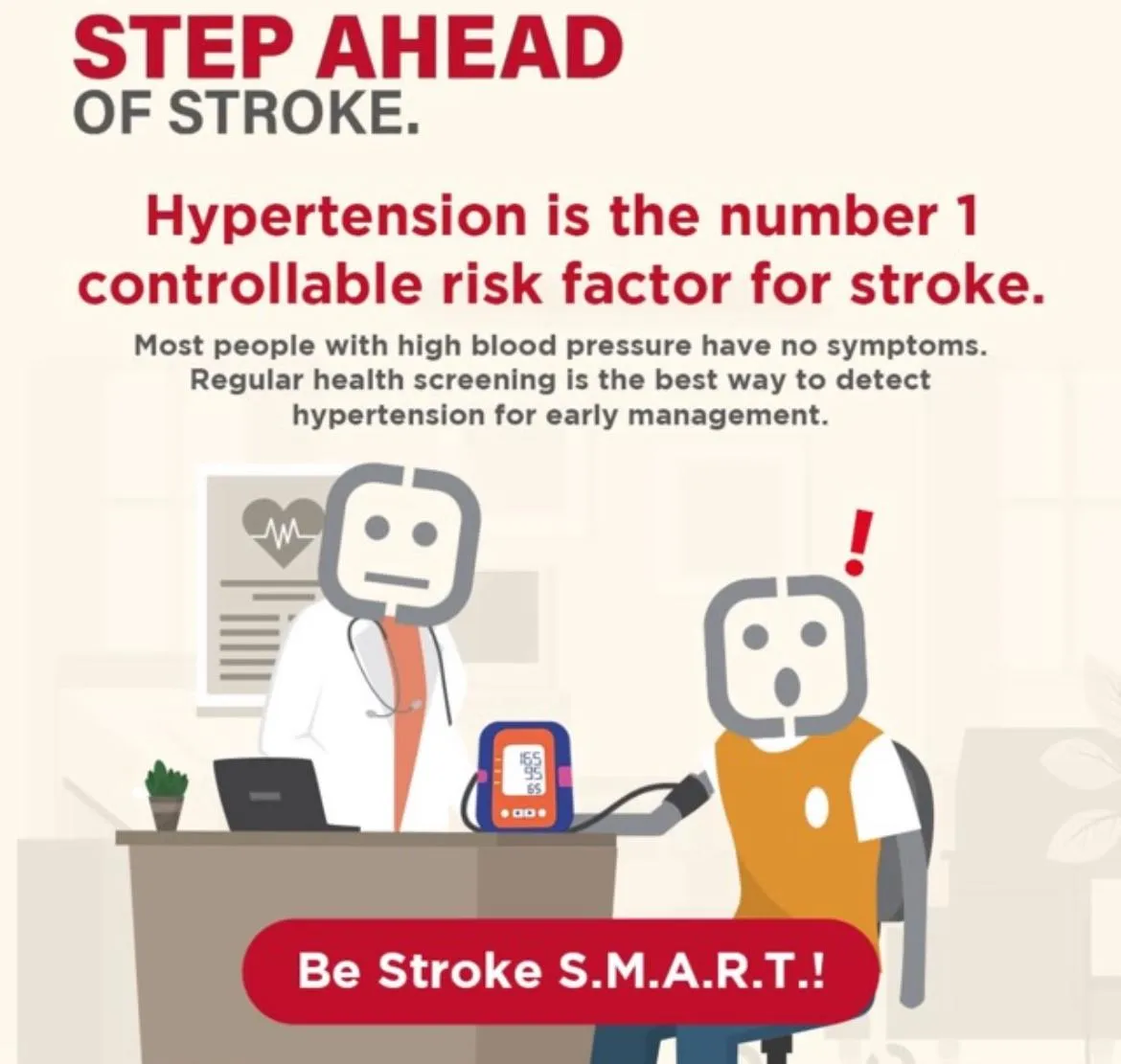
A stroke is a serious medical emergency that requires immediate attention. Recognising the symptoms early and acting swiftly can significantly improve recovery and survival rates.
This article will guide you on the proper steps to take when you suspect someone is having a stroke, ensuring timely medical intervention.
Step 1: Recognise the Early Symptoms of a Stroke
The signs and symptoms of a stroke can occur suddenly.
Remember “FAST” for easy recall. FAST is for following as outlined below
- F – Face: Ask the person to smile. Does one side of the face droop or appear numb?
- A – Arms: Ask the person to raise both arms. Does one arm drift downward or appear weak?
- S – Speech: Is the person’s speech slurred, difficult to understand, or repeated?
- T – Time: Call 995 (or your local emergency number) immediately if you notice any of these signs. Time is critical in stroke treatment.
Recognising these symptoms early is crucial, as they indicate a life-threatening emergency. If you notice these signs, seek immediate medical help.
The sooner a stroke is identified, the better the chances of recovery.
A neurologist or emergency physician will assess stroke symptoms, while a heart specialist may be involved in addressing related heart conditions that could have caused the stroke.
Step 2: Call Emergency Services Immediately
If you suspect a stroke, do not hesitate to call emergency services immediately. Time is critical for stroke patients — every second counts in ensuring they receive appropriate care.
The faster the patient is transported to a hospital, the better their chances of receiving life-saving treatments.
Emergency services in Singapore are well-equipped to transport stroke patients to hospitals with dedicated stroke units, where neurologists can assess and provide timely treatment to minimise potential complications.
Step 3: Avoid Giving Food or Drink
Do not give the person food or drink if you suspect they are having a stroke. This can be dangerous, as swallowing may be impaired, leading to the risk of choking. Additionally, giving food or drink could interfere with medical treatments that might need to be administered once the person reaches the hospital.
Step 4: Record the Time of Symptoms
It is crucial to record when the stroke symptoms first appeared. This information is essential for medical professionals, as it helps them determine the most effective treatment options. Accurate timing can be critical in deciding whether the patient is eligible for clot-busting drugs or other treatments.
Step 5: Keep the Person Safe and Comfortable
If someone has experienced a stroke, ensuring their immediate safety and comfort is critical. While waiting for emergency services to arrive, follow these steps:
- Lay the person down comfortably, preferably on their side, to prevent choking if vomiting occurs.
- Keep the environment calm and quiet to avoid adding stress.
- Avoid moving the person unless absolutely necessary, as it could exacerbate their condition.
- Keep them calm and encourage steady breathing.
These actions will help stabilise the individual while awaiting professional medical care.
Why You Should See a Heart Specialist
After a stroke, it is essential to follow up with a heart specialist to evaluate potential underlying heart conditions that may have contributed to the stroke. Strokes are often linked to cardiovascular issues such as high blood pressure, irregular heart rhythms, or blocked arteries.
A heart specialist can:
- To identify cardiovascular risks, perform comprehensive evaluations, including heart imaging and diagnostic tests.
- Provide a tailored plan for managing risk factors like cholesterol levels, blood pressure, or atrial fibrillation.
- Recommend lifestyle changes or medical treatments to prevent future strokes or heart-related complications.
A heart checkup is also an important preventive measure for individuals at higher risk of cardiovascular disease. It ensures long-term heart health and reduces the chances of future incidents.

Get Advice from Gerard Leong Cardiology Clinic for Stroke Prevention and Heart Health
In summary, timely recognition of stroke symptoms and swift action are vital for ensuring the best outcomes. Consult a heart specialist for advice on stroke prevention and management.
If you or a loved one is at risk, we encourage you to book a heart checkup in Singapore at Gerard Leong Cardiology Clinic, where stroke prevention and heart health assessments are prioritised. Your health matters, and taking the proper steps today can make all the difference tomorrow.
Source:
